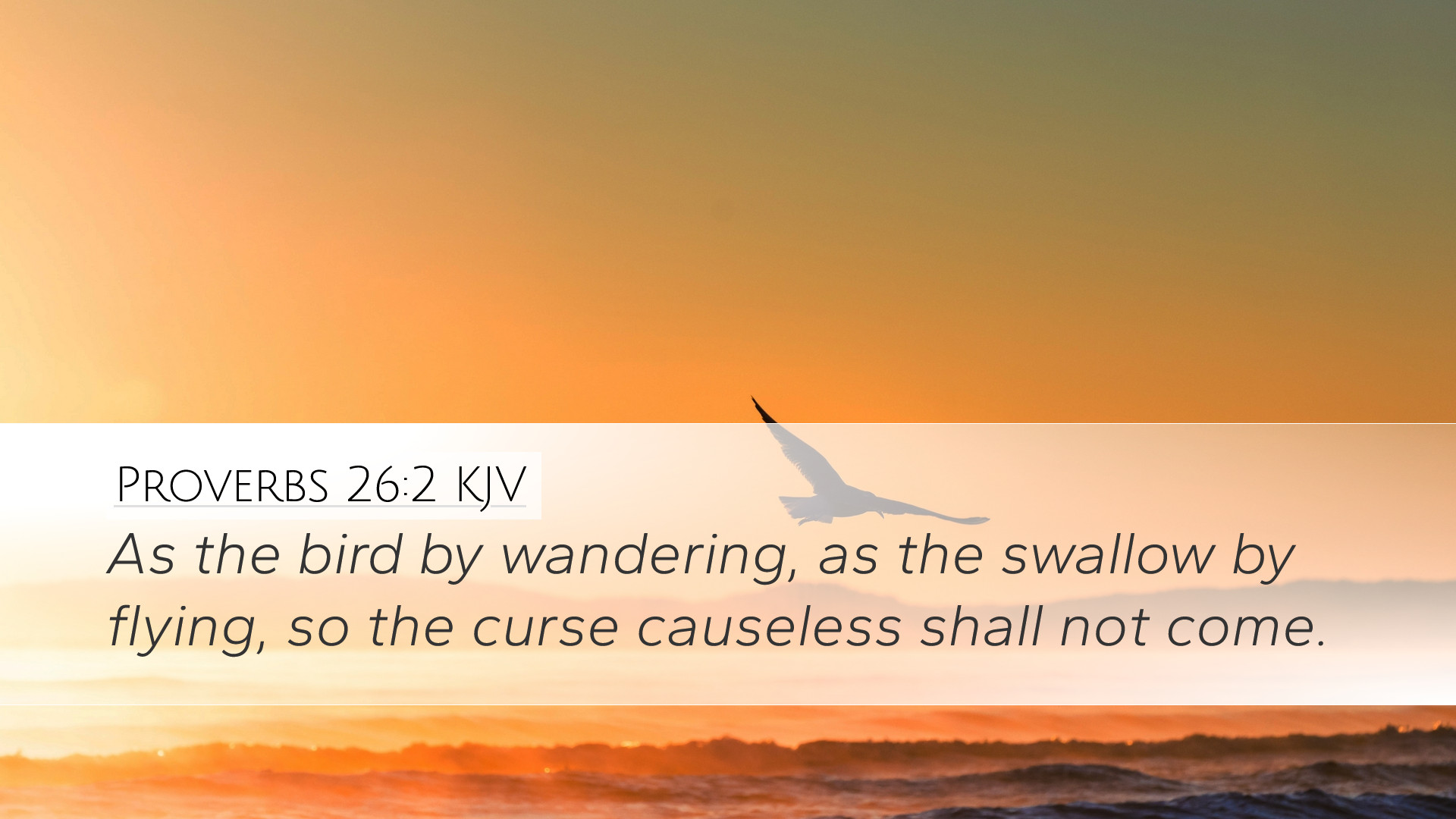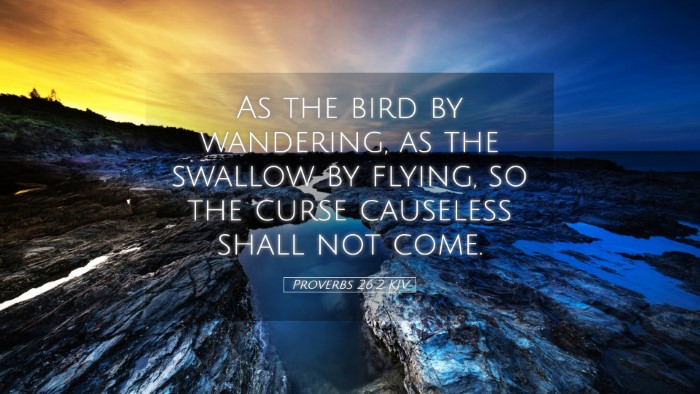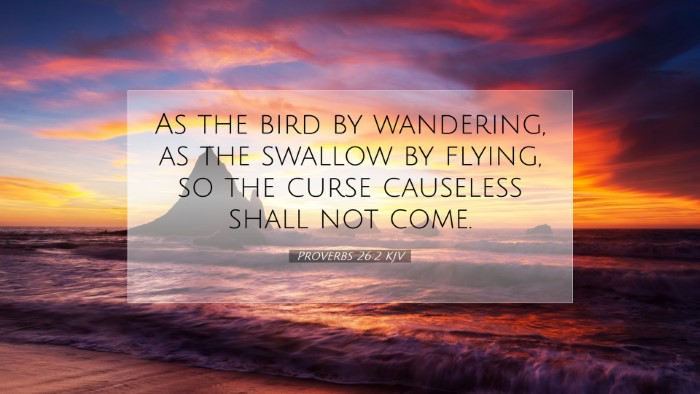Commentary on Proverbs 26:2
Verse: "As the bird by wandering, as the swallow by flying, so the curse causeless shall not come." (Proverbs 26:2, KJV)
Introduction
Proverbs 26:2 presents a metaphorical insight into the nature of curses and their effectiveness based on causality. The verse emphasizes the idea that a curse without cause is as ineffective as a bird wandering without purpose.
Interpretation and Insights
Matthew Henry's Commentary
Matthew Henry, a revered commentator, expounds on this verse by highlighting the folly of issuing curses without justification. He draws an analogy between the wandering of a bird and the instability of ungrounded curses. Henry notes that just as birds wander without a destination, so too do curses without a basis fail to impact.
The emphasis on the natural order suggests that God, in His wisdom, has established a principle where unfounded maledictions lose their potency. Henry also implies that legitimate curses stem from justifiable grievances rather than arbitrary enmity.
Albert Barnes' Commentary
Albert Barnes provides a nuanced analysis of the metaphorical imagery used in this verse. He states that a curse, much like a bird, requires a hospitable environment to land and be effective. Without a righteous cause, a curse merely flits about, lacking any root or potential effect.
Barnes emphasizes the sovereignty of God in determining what curses may take effect. He suggests that believers should be cautious in speaking words of malediction, recognizing that they must be based on righteous indignation rather than personal ire.
Adam Clarke's Commentary
Adam Clarke expands on the implications of this proverb, asserting that it serves as a warning against the danger of frivolous speech. Clarke posits that individuals often issue curses in haste or anger, but such expressions fail to realize their impotence without just cause.
Clarke also notes the nature of the swallow as a migratory bird, symbolizing transience and flightiness. This reinforces the idea that curses which lack a foundation will inevitably pass away, much like the swallows that migrate seasonally. He urges readers to consider the gravity of their words and the wisdom of aligning their speech with truth.
Theological Implications
- The Nature of Divine Justice: The verse affirms God's justice, suggesting that any curse must arise from righteousness. It is a reminder that unmerited curses will not come to fruition, aligning with the broader teachings of God's character.
- Impact of Speech: This passage serves to highlight the power of the tongue and emphasizes the responsibility leaders, pastors, and individuals have in their speech. It draws attention to the weight of one's words and the necessity of speaking truth and love.
- Human Relationships: The verse encourages believers to consider the necessity of establishing genuine rapport and to refrain from gossip or slander that can lead to wrongful condemnation or cursing of others.
Application for Life
In applying this verse, pastors and leaders can guide their congregations to embrace the principle that words should carry intention and meaning. This involves encouraging a culture where blessings are favored over curses, motivating believers to cultivate uplifting environments.
For individuals, it serves as an encouragement to reflect before speaking, ensuring that words align with a heart of love and mercy. Engaging in self-examination regarding motivations behind speech can foster stronger relationships and a healthier community.
Conclusion
Proverbs 26:2 serves as a profound reminder of the nature of speech and its significance in human experience. By exploring the rich insights from Matthew Henry, Albert Barnes, and Adam Clarke, one can appreciate the complexity of this proverb and its implications for personal conduct and community life.
This verse calls for a commitment to integrity not just in actions but also in the words we choose to express, affirming that true wisdom recognizes the gravity and potential consequences of our speech.


